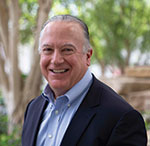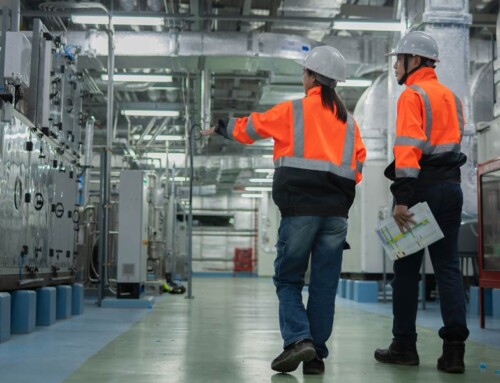The State of the Industry 2021 (Revisited)

The issues facing you as an ISSA member company have continuously evolved we last checked in at the start of the year. You might have endured seemingly impossible situations, to only move into what some call a “new normal,” and then, just when there was hope, you experienced more emerging issues, i.e., bad news.
Progress doesn’t believe in equal opportunity. There are colossal gaps in the vaccination rollout across the globe, and in the United States, there are considerable pockets in the population that aren’t embracing available vaccination opportunities. Gender, age, and geography all impact this. Of course, everyone has a right to decide if a vaccine is an option for them, but an uneven recovery is a real and impactful issue for our industry.
Who knew that it would be just about impossible to rebuild your staff and find adequate employees? Who knew that the somewhat rare work-from-home scenario is now demanded by your staff, and you either honor it or suffer the consequences? Or maybe you want more remote workers, as you have seen the light of day and it works, sometimes much better than the traditional office setting.
When it comes to staffing, you will see comments in this article about signing bonuses and incentives. The option of remote working is the new signing bonus for many and might be the best dangling carrot you have. Of course, that won’t work for your front-line workers. Putting out the “help wanted” sign will only give you something more to do as you dust it off regularly and peek to see if you spelled some words wrong or something.
And what about innovation? Is the answer to a shrinking workforce more innovation so the work is accomplished using automation and robotics? Or is the answer more productive tools that allow workers to cover more ground? You will see many options that address this issue at ISSA Show North America 2021, November 15-18 in Las Vegas. See what’s coming at issashow.com.
What you need are ideas that really work, to find out what your peers are doing to cope, drive through this pandemic, and come out the other side of it. While every person, every company, and every organization are unique, we can all learn from how others faced down and overcame challenges. If you have had a strategy or lightbulb moment, share it with the industry. Please send me a note at [email protected]. We will craft something out of your idea and release it to the industry.
In the meantime, we are presenting to you some of these ideas with this State of the Industry report. It features these five ISSA board members and industry experts:
- Roman Chmiel, Scrub Inc.
- Ailene Grego, SouthEast LINK
- Andy Clement, Kimberly-Clark Professional
- Harry Dochelli, Essendant
- Michel de Bruin, Greenspeed International BV.
As your review their commentary, how they handled industry challenges and the examples their companies set are all worthy of imitation for your own company or organization, no matter the type or size.
Q: What have we learned about the value of being flexible during the past 18 months?

Our company is unique in that we serve the aviation industry at Scrub Inc., but like most ISSA member companies, we value being flexible and adjusting to challenges. While this pandemic is more intense than previous infectious issues, history and experience set us up for success when faced with the challenges of COVID-19.
Since our company has always worked with a lean leadership structure, decisions regarding new procedures to accommodate work from home or office reassignment to ensure social distance protocols were met and were relatively straightforward.
Ailene Grego, ISSA distributor director
Since the pandemic began, “pivoting” has become the norm for most businesses. We have had to pivot in many ways, including working remotely, engaging through video conferencing, sourcing alternative products, operating lean due to staff shortages, increasing our online presence, and bringing on new technology or products to enhance our customer’s productivity. Those who embraced the challenges survived and thrived. Those who were reluctant to reinvent themselves have suffered.
As a small business in an industry where large organizations continuously buy smaller companies on a grand scale, we must also learn how to differentiate ourselves by providing a stronger service offering.
Andy Clement, ISSA manufacturer director
It seems like one of the most frequently used words in business today is “agile”—but I feel we’ve all had to embody it to succeed during the pandemic. This can be challenging for large established companies like Kimberly-Clark, but I’m proud of what we’ve accomplished.
We’ve had to be agile with our sales team, training everyone on digital selling and introducing hybrid selling models, blending in-person and digital tactics. And we’ve had to be agile with our supply chain—shifting critical product where it’s needed most to support essential infrastructure workers.
What I’ve learned from all of this is that making decisions faster at a big company can be done, and empowering employees is certainly a good way to do so. For example, we have empowered our local sales team on whether to make a sales call, in person or digitally, depending on customer need. And when you empower employees, there are positive benefits to your company’s culture and, of course, revenue and share gain.
Harry Dochelli, ISSA vice president/president-elect
I believe every company and every individual had to learn to be more flexible in 2020. We were no different at Essendant. The speed of change forced us to adapt and flex with what we knew at the time. We made mistakes. We learned from our mistakes and improved each time.
When it came to our associates, safety was our number one priority. Our distribution center associates went in to serve our customers every day, so we had to adapt to new safety protocols quickly.
For our office workers, we initially moved to remote working without the aid of Microsoft Teams. We quickly got Microsoft Teams up and running and began connecting via video both internally and externally.
With the rush to buy products and the demand for certain products, we built an entirely new back-order process within 60 days. This included the capabilities to allocate and prioritize customers.
We also ramped up our communication process to stay connected both internally and externally. We sent out regular updates to our associates and increased the frequency of our town hall meetings. For our customers, we developed virtual meetings and increased the frequency of all communications so we could stay connected.
Michel de Bruin, ISSA Europe council chair
We learned how to keep in contact with each other in this period. We adapted to using video calls for quick updates every morning or end-of-the-day evaluations. Inside sales also learned to video call with their customers. And due to working from home, the contact became more personal.
From a CEO’s point of view, I liked the fact that everybody was agile with the regular changes of lockdown and reopening, and that the team came up with many ideas of products combination to support our customers with their new challenges.
Q: In the past year, what have you seen regarding innovation?
Chmiel
Airlines suffered significantly due to the limitations put in effect to slow the spread of COVID-19. Near shut-down levels called for an immediate response in developing new systems and standards to upgrade cleaning and disinfection processes to reestablish confidence in travel.
Working in conjunction with the airline and various health organizations, such as Cleveland Clinic, technologies and products previously limited to health and hospital settings were adapted for aircraft use. These innovative approaches to the systematic upgrade of cleaning and disinfection required the establishment of a new normal in both the accomplishment and documentation of our work.
Once airlines began to recover flight levels, the reintroduction of previously parked aircraft and increased workload allowed the return to work of many team members. With that came the need for aggressive and intensive training programs to introduce the previously experienced staff to entirely new processes.
Grego
In the past year, we have seen a dramatic shift to safer, non-toxic cleaning and disinfection. Several new companies are manufacturing on-site generators that produce hypochlorous acid. Many others are providing solutions ranging from air purification systems, UVC disinfection, and electrostatic sprayers (from handheld to automated), as well as drones to disinfect large areas.
Panic buying has subsided, and now companies are using up their excess inventory. Some are taking a closer look at equipment with AI (artificial intelligence) to help with employee shortages and the extra demand for more cleaning and disinfection.
The rate at which we are approached with new technology has slowed. However, there are many innovations to choose from right now.
Clement
I believe innovation has accelerated in our industry over the past year as the need for protection and hygiene in society escalated to new levels.
Examples of disruptions caused by COVID-19 are everywhere in our industry, whether virtual business solutions and models or innovations in healthcare and telemedicine.
Keeping in mind the fundamental change in how people view cleaning, we launched new wiper products that help protect surfaces against bacteria for up to 24 hours. We also successfully launched our NIOSH-approved N95 respirators—not only at a record pace, but also driving an innovative pouch-style design for maximum comfort and breathability, scaling production to sizable amounts very quickly.
Dochelli
Our innovation came out of the need to adapt and change. We prioritized better last year and focused on the critical items for us to serve our customers. We are trying to stick with the agile process we developed last year and the need to maintain the urgency and speed to move our business forward.
de Bruin
Disinfection spray systems and ecological/biodegradable disinfectants were successfully introduced. An absolute great trend in the cleaning industry is that hygiene became a trending topic. Everybody was talking virtually every day about hygiene and cleaning. People are now much more aware of the direct relationship between good, frequent cleaning, and staying healthy.
Q: What can the cleaning industry do to support and grow its workforce during these challenging times?
Chmiel
Currently, staffing is the most challenging issue.
Sourcing for staff for airport-based cleaning positions has always presented a challenge, as the nature of the business (24 hours a day, seven days a week) requires work outside of what is considered regular business hours, with a heavy emphasis on overnight work.
Because of the ongoing situation with federally supported additional unemployment dollars (currently funded until October 2021), many who should be available to return to work are remaining at home without income loss.
In some states, governors have begun to refuse the additional federal unemployment funds to encourage a return to work, which has netted some gains.
To staff and meet the growing airline schedule and demand, monetary incentives are needed for sign-on bonuses, hiring referrals, and retention. Other types of incentives have proven unsuccessful, so the additional dollars required to source and retain staff goes directly to the bottom line of the cleaning industry.
Grego
It’s not a secret that the pool of workers has diminished, whether that’s due to government benefits, the fact that they don’t feel safe returning to work, or just decided to change course. It’s a hot button issue for almost everyone.
I’ve been to restaurants that can’t open because they don’t have enough cooks or servers. I’ve been to stores that are typically open but are closed today because they don’t have enough staff. Our industry is much the same, especially in manufacturing and distribution, where hourly employees are scarce. Some companies are offering signing bonuses, either paid all at once or split over time to ensure they stay. Some have significantly increased the amount they offer per hour/per year. Some offer additional vacation days. Whether or not any of these work remains to be seen.
Clement
Cleaning professionals have truly emerged as essential heroes on the front lines, putting their own health and safety at risk. I think educating the public on the importance of these roles can attract talent. We also must provide tools to not only work safely and confidently, but also with resources that can empower front-line workers to meet the challenges of the future. A good example of this was the partnership Kimberly-Clark launched with ISSA last year, where we trained over 6,000 cleaning professionals in 84 countries through scholarships for the GBAC® Online Fundamentals course.

Everyone is struggling with hiring and retaining people. I believe that the traditional methodology and work practices are not the answers we need.
People want flexibility and an environment that they enjoy working within. Working remotely is the first question we are being asked as we recruit. We are looking into flexible hours, part-time workers, and signing bonuses to help us fill our open positions.
We are also trying to improve our recruiting processes by selling our culture and the opportunity to grow with our company. I believe our industry needs to do something similar. As an industry, we need to heighten the awareness of the vital role our industry plays in all facets of our business and personal lives. Keeping the world healthy and safe through cleaning best practices is now more important than ever.
de Bruin
We need to strongly emphasize the direct link between good cleaning and health. We must do this as an industry. ISSA can and already is playing an expanded role in this. The younger generation is very keen on hygiene and sustainability. If they see what they can contribute to the world to join this evolving industry, I am confident we will become a much more interesting industry to work in.
Q: Some companies and organizations are now mandating a return to the office for workers. How does this impact the cleaning industry, and what can ISSA member companies do to help the process?
Chmiel
As workers return to an office setting, they are expressing concern regarding environmental conditions, including cleaning expectations and air quality/circulation.
We are uniquely positioned to reassure returning staff regarding the cleanliness and, more importantly, disinfection capability of the work being done to prepare workspaces.
Janitorial staff has received increased training and the tools to ensure the health and safety of all who are working in the spaces we care for. Clear communication of both processes and outcome provide for decreased concern regarding the environment and, therefore, an increased ability to focus on their primary roles.
Grego
To me, the obvious answer is if offices return to full capacity, the need for goods and services will increase. However, not everyone will return to full capacity.
As a member of Vistage, a CEO organization, I’ve learned that many corporate offices are returning with a hybrid plan and will not require their employees to be in the office full time. What that looks like depends on the organization. Some are requiring anywhere between two to four days back in the office, and the remaining to be spent working remotely. If this is the case, the same need for consumables will not return to pre-pandemic numbers.
This, however, creates an opportunity for us to introduce other technologies that will help productivity. It’s our job to help our customers generate return-to-work plans and create opportunities for growth within the account.
Clement
Certainly, the work environment has changed forever. With workers primarily returning in a hybrid fashion, the need to help ensure that workplaces are safe and hygienic has never been greater. Society has changed, and I believe there is an expectation from office workers that buildings and surfaces must be better cleaned.
Clearly, the role of the cleaning industry has been elevated, and cleaning protocols and hygienic products will be essential to create a great employee and/or building tenant experience. In fact, in many cases, a clean office environment could be a differentiator to attract and retain employees and tenants. And since most companies are offering flexibility and a hybrid work environment that blends in-office and remote workdays, the need for flexibility in cleaning will be critical. Since many desks may be shared, cleaning on a frequent basis will be more critical than ever. It presents a significant opportunity for our industry.
Dochelli
How people work in the future has changed forever. The future work models will include remote workers all the way to full-time office workers. Whether you want people back in the office part time or full time, your employees are going to expect a high standard of cleaning and sanitizing. That bodes well for our industry.
de Bruin
I think the occupation of the office will never be the same as before the pandemic, especially in Europe, where we have huge traffic problems and cities that are expensive to live in. Most likely, the trend will be to work at least two days a week from home.
A positive here is that some won’t need to live close to the office. It is better for the workers, but also an expanded potential to recruit new personnel. There will be less space to clean, but the cleaning needs to be done in a much more hygienic, safe, and sustainable way. This means high-quality cleaning with a focus on a safe and healthy environment is required. This is a great opportunity for the cleaning industry to reinvent itself and become an industry with more value.
Q: If you were to grade the cleaning industry today, what would that look like?
Chmiel
Because of the significant increases in approach and tools, current results would provide an “A” in results for the customer.
Airlines can promote communication to customers that the aircraft environment tests among the best for lack of potential transmission of viruses at a .003% possibility of infection.
As an industry, we need to recognize that the expectations around levels of disinfection are the new normal, and standards must be increased to include meeting them.
In addition to increasing company standards, additional training, and certification programs, such as offered through ISSA and GBAC, it is essential to provide assurance to current and future customers of our knowledge and understanding of the critical role we play in combating the risk of infectious disease such as with the coronavirus.
Grego
I think the grade I would give our industry is different from what our customers would grade our industry. We have been hit with so many supply chain issues due to weather and events that are beyond our control.
What matters is how our customers view our response. Should they return a poor review, it’s our job to educate them on what’s really happening out there. Overall, I think most companies have done an excellent job hunting down alternative solutions. It’s not over yet. Education is key.
Clement
Definitely an “A.” I have spent my entire career in the cleaning trade, and I have never been prouder to be part of this industry and on the ISSA board of directors. The way ISSA has responded with GBAC accreditation and certification programs, and what all the suppliers, distributors, and cleaners have done to keep society safe, has been very inspiring. I think we collectively raised the bar, and that’s something to be proud of.
Dochelli
I would grade it at a “B plus.”
I think the importance of cleaning and sanitizing came to the forefront in 2020. Many companies in our industry benefitted greatly from the need to improve the cleaning standards at home, work, or in public. I believe the key is, as an industry, to keep the need to maintain this new standard of cleanliness, post-pandemic.

In Europe, I think we are at a “C.” Green and healthy cleaning will be the trend. Building owners expect to be advised by the cleaning industry on how they can create and secure a clean, safe, and healthy building. We are able to do this, but we need to invest in high-quality cleaning tools and professionally trained workers and staff.
Using recycled or recyclable material is trending today in Europe. Building owners want to know the origin of products, as well as the vision and mission of the companies they are doing business with. Transparency is becoming key.
My advice is that ISSA member companies need to investigate and invest in these extremely important topics. I genuinely believe this will help our industry make the step to grade ourselves with an “A” in the near future.
Keep your finger on the pulse of the industry by attending ISSA Show North America 2021. Tune in to a special sneak peek below to see what you can expect live and in person at the Las Vegas Convention Center.



















